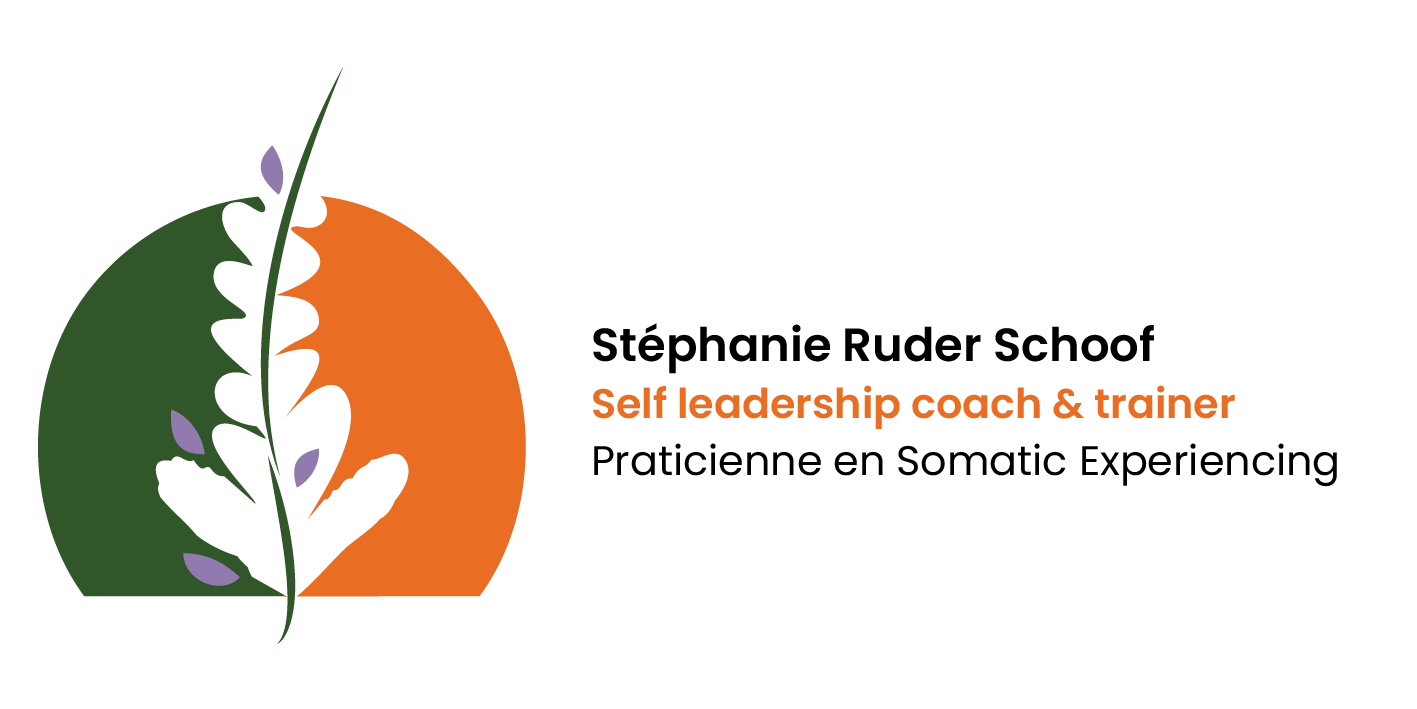My approaches.
To support and guide you.
I adapt to your needs.
Complex and deeply rooted challenges often require more than one approach — especially when they touch the mental, emotional, and physical levels.
I draw primarily on three complementary modalities: Integral Coaching, Inner Relationship Focusing, and Somatic Experiencing®.
You may find these approaches helpful if:
You're looking to strengthen your self-confidence and self-esteem
You're seeking better ways to manage stress, anxiety, or overwhelm
You're facing complex decisions and would like more clarity and inner alignment
You’d like to improve communication and relationships, both personal and professional
You're exploring how to set meaningful goals and take action with more ease
You're noticing patterns of self-doubt or imposter syndrome that hold you back
You're feeling the need to gently address unresolved or lingering emotional wounds or trauma
ICC
Integral Coaching
Integral Coaching, as taught by Integral Coaching Canada (ICC), is a powerful approach designed to support personal and professional growth by taking into account all aspects of the human experience.
Rooted in Integral Theory developed by Ken Wilber, this method recognizes that human development unfolds across multiple dimensions — physical, mental, emotional, and spiritual.
It draws on a rich blend of coaching, psychology, organizational development, and spiritual insight to offer a comprehensive framework. This enables clients to explore their potential, move through obstacles, and evolve toward greater awareness, effectiveness, and fulfillment.
ICC’s Integral Coaching approach supports sustainable change by working on:
External dimensions (behaviors and skills)
Internal dimensions (beliefs and values)
Collective dimensions (social and professional context)
By addressing the whole person, this approach fosters deep transformation and self-actualization, balancing development across all levels of being.
SE
Somatic Experiencing
Somatic Experiencing® offers a holistic, body-centered approach to healing trauma — supporting resilience, emotional balance, and lasting well-being.
Somatic Experiencing (SE) is a therapeutic approach that helps individuals recover from the effects of stress, trauma, and difficult life experiences by focusing on how the body responds to those events.
Unlike talk-based methods that address only the mind, SE recognizes that the body stores sensations and emotions linked to unresolved trauma. Practitioners guide clients through a gentle process of noticing physical sensations, movements, and autonomic responses, allowing the nervous system to gradually release accumulated tension.
SE supports the regulation of the nervous system, helping people regain emotional and physical balance, and build greater resilience in the face of life’s challenges. It is a non-invasive, individualized method that can contribute deeply to trauma recovery and the restoration of overall well-being.
“Trauma does not reside in the event itself, but in the nervous system of the person who experienced it. It is the result of an incomplete physiological response to a situation perceived as life-threatening, which leads to a loss of nervous system flexibility.”
This loss disrupts the natural flow of life, and breaks connection — with oneself, with others, with nature, and with our spiritual source.
To heal, we must support the autonomic nervous system in regaining its full potential and vitality.
Peter A. Levine
IRF
Focusing et Inner Relationship Focusing
Focusing, developed by Eugene Gendlin, is a personal development and problem-solving approach that emphasizes listening closely to the body’s inner sensations in order to access deeper, often unconscious, information.
Inner Relationship Focusing (IRF), developed by Ann Weiser Cornell, builds on Gendlin’s work and centers on creating a kind, respectful, and compassionate relationship with oneself.
This method encourages us to establish an “inner relationship” with our emotions, bodily sensations, and inner parts — helping us better understand our needs, inner conflicts, and personal challenges.
A core principle of IRF is that every part of us has a positive intention, even if it doesn't seem that way at first. Instead of pushing away or judging difficult thoughts or feelings, IRF invites us to welcome them with curiosity, compassion, and openness.
This approach nurtures a respectful and exploratory inner dialogue, where all parts of ourselves can be heard and acknowledged.
IRF can be a powerful tool to:
explore complex life situations
improve your relationship with yourself and others
access deeper levels of self-awareness and inner wisdom
work through emotional or psychological challenges
At its heart, IRF supports self-acceptance, introspection, and personal growth by cultivating an authentic, healing relationship with all aspects of who you are.
